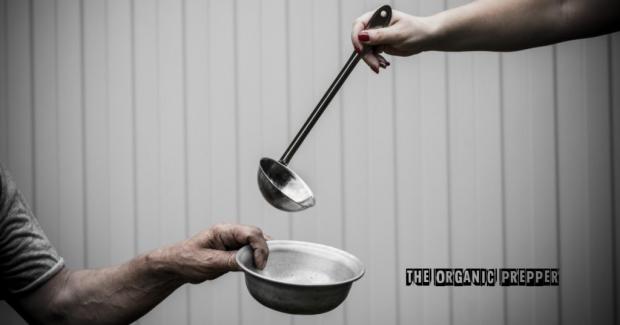
Breaking News
 America's Streets Are Filled With Poop, And Billions Of Gallons Of Untreated Wastewater...
America's Streets Are Filled With Poop, And Billions Of Gallons Of Untreated Wastewater...
 3 Million Pages of Child Sex Trafficking, So, What Is the FBI Doing?
3 Million Pages of Child Sex Trafficking, So, What Is the FBI Doing?
 Communists Once Again Suck At Hockey
Communists Once Again Suck At Hockey
 Grand Theft World Podcast 274 | Epstein Apocalypse with Guest Santos Bonacci
Grand Theft World Podcast 274 | Epstein Apocalypse with Guest Santos Bonacci
Top Tech News
 New Spray-on Powder Instantly Seals Life-Threatening Wounds in Battle or During Disasters
New Spray-on Powder Instantly Seals Life-Threatening Wounds in Battle or During Disasters
 AI-enhanced stethoscope excels at listening to our hearts
AI-enhanced stethoscope excels at listening to our hearts
 Flame-treated sunscreen keeps the zinc but cuts the smeary white look
Flame-treated sunscreen keeps the zinc but cuts the smeary white look
 Display hub adds three more screens powered through single USB port
Display hub adds three more screens powered through single USB port
 We Finally Know How Fast The Tesla Semi Will Charge: Very, Very Fast
We Finally Know How Fast The Tesla Semi Will Charge: Very, Very Fast
 Drone-launching underwater drone hitches a ride on ship and sub hulls
Drone-launching underwater drone hitches a ride on ship and sub hulls
 Humanoid Robots Get "Brains" As Dual-Use Fears Mount
Humanoid Robots Get "Brains" As Dual-Use Fears Mount
 SpaceX Authorized to Increase High Speed Internet Download Speeds 5X Through 2026
SpaceX Authorized to Increase High Speed Internet Download Speeds 5X Through 2026
 Space AI is the Key to the Technological Singularity
Space AI is the Key to the Technological Singularity
 Velocitor X-1 eVTOL could be beating the traffic in just a year
Velocitor X-1 eVTOL could be beating the traffic in just a year
SELCO: What We Ate and How We Got Food When the SHTF

Editor's Note: If a disaster is bad enough and lasts long enough, it isn't going to take long before there is no food to be had. In this interview with Selco, he shares his real-life experiences and explains how people kept from starving to death when there was no food in the stores. ~ Daisy
How do you get food when there are no stores?
At the beginning of everything, most of the people did not have any significant "stash" of food in their homes.
In other words, the majority of common folks had food for a couple of days in their pantry and that was it. There were exceptions to that because the process of collapse did not happen in a few hours (in terms of suddenly there is no food in the stores).
When the chaos started, people looted stores after a short period of everyone buying things in a panic. Still, the majority of folks did not manage to get a decent stash of food from stores. Some did not want to believe that they were gonna need a stash. Others did not want to go out and participate in looting because it was dangerous. But I think the most obvious reason was that all food from stores was taken very fast.
In the beginning period of SHTF, events unfold at a very fast pace. Actually, events go one after another so fast that if you find yourself lost in one event at the end of several events, you ask yourself, "Why in the name of God I did not go out and buy a whole bunch of food while I still could do that?"
Was gardening an option? If so, how did people protect their gardens?
Yes, it was an option, but the percentage of food from a garden was low because of a few reasons.
It was a city, without enough land for significant food growing, and the second reason is that even people who had some land (small gardens near houses) needed time to grow food there.
People usually did not grow food there in normal times, flowers, tea, maybe some particular kind of tomato, salad greens, and similar.



